Where abortion is illegal, women suffer. Before 2002 when abortion was illegal in Nepal, women were imprisoned, half of all hospital admissions were due to complications from clandestine abortions, and hundreds of women died each year.
The study investigated whether women with etonogestrel implant placement in the immediate postabortion period have similar continuation rates to women with interval placement.The risk of discontinuation in women with postabortion placement was higher but not statistically different than women with interval placement (unadjusted hazard ratio 1.79, 95% confidence interval 0.81-3.96). For women who want a contraceptive implant after an abortion, immediate placement should be available.
The nation’s top court is scheduled to meet Monday to review a constitutional challenge to the country’s abortion laws and to other policies that impede women’s access to a full range of human rights. A positive decision would mean that for the first time in 41 years, Bolivian women meeting certain conditions for an abortion would be free from criminal sanctions.
Health care providers play a central role in the promotion and protection of human rights in patient care. Consequently, the World Medical Association, among others, has called on medical and nursing schools to incorporate human rights education into their training programs. This report describes the efforts of one Central American nongovernmental organization to include human rights–related content in reproductive health care provider training programs in Nicaragua and El Salvador. Evaluation findings suggest that exposure to educational materials and methodologies that emphasize the relationship between human rights and reproductive health may lead to changes in health care provider attitudes and behaviors that help promote and safeguard human rights in patient care.
Ipas author response to VSI’s letter to the editor,Osur et al.’s Implementation of misoprostol for postabortion care in Kenya and Uganda: A qualitative evaluation
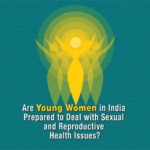
Young Indian women often face social, economic, logistical, policy and health system barriers when accessing sexual and reproductive health services, including safe abortion care. A cross-sectional household survey was conducted in July – August 2012 in Jharkhand, India. We interviewed 1,381 young women (15-24 years) to assess their knowledge, agency, and skills on SRH issues, including safe abortion, and to identify barriers and influencers that lead to particular behaviors, decisions, or service utilization.
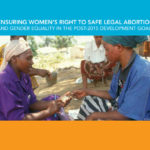
This publication explains how international conferences and development agendas have increasingly recognized women’s reproductive rights, including the right to safe abortion, as a necessary component of achieving gender equality. The document calls on world leaders to focus on gender equality and decriminalization of abortion in the post-2015 development framework.
Ipas works with the International Federation of Medical Students Associations (IFMSA) to train medical students from around the world on the importance of safe abortion access for women’s health. Here, Joe Cherabie, a medical student in Lebanon and IFMSA student trainer on safe abortion, explains why he believes these trainings are so important.
Ipas works with the International Federation of Medical Students Associations (IFMSA) to train medical students from around the world on the importance of safe abortion access for women’s health. Here, Joe Cherabie, a medical student in Lebanon and IFMSA student trainer on safe abortion, explains why he believes these trainings are so important.
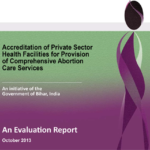
Recognizing the need to increase access to safe abortion services to reduce maternal mortality and morbidity, in 2011 the Government of Bihar developed a new mechanism of accrediting and subsidizing private health care facilities. The program, Yukti Yojana (“a scheme for solution”), accredits eligible health facilities and supports them in providing abortion-related services free of charge to low-income women. This is the first PPP model in India to ensure access to safe abortion services free of cost at accredited private facilities. This study evaluates the efficacy of the first phase of intervention for scaling up further and replicating the same model in other states.
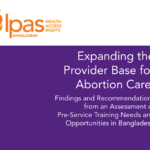
In 2012, Ipas undertook an assessment in Bangladesh, India, Nepal and Pakistan to determine the specific needs and gaps in the pre-service education systems for midlevel providers and to identify opportunities, strategies and recommendations for creating more equitable access to safe abortion care. Sources for the pre-service assessment include curricular review; government documents; key informant interviews; reports; assessments of provider performance and training; and site observation visits. The assessment results and recommendations in this report focus on Bangladesh.
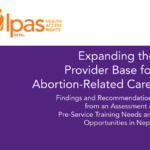
In 2012, Ipas undertook an assessment in Bangladesh, India, Nepal and Pakistan to determine the specific needs and gaps in the pre-service education systems for midlevel providers and to identify opportunities, strategies and recommendations for creating more equitable access to safe abortion care. Sources for the pre-service assessment include curricular review; government documents; key informant interviews; reports; assessments of provider performance and training; and site observation visits. The assessment results and recommendations in this report focus on Bangladesh.
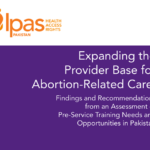
In 2012, Ipas undertook an assessment in Bangladesh, India, Nepal and Pakistan to determine the specific needs and gaps in the pre-service education systems for midlevel providers and to identify opportunities, strategies and recommendations for creating more equitable access to safe abortion care. Sources for the pre-service assessment include curricular review; government documents; key informant interviews; reports; assessments of provider performance and training; and site observation visits. The assessment results and recommendations in this report focus on Bangladesh.
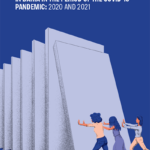

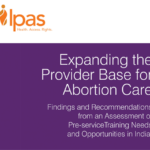
In 2012, Ipas undertook an assessment in Bangladesh, India, Nepal and Pakistan to determine the specific needs and gaps in the pre-service education systems for midlevel providers and to identify opportunities, strategies and recommendations for creating more equitable access to safe abortion care. Sources for the pre-service assessment include curricular review; government documents; key informant interviews; reports; assessments of provider performance and training; and site observation visits. The assessment results and recommendations in this report focus on Bangladesh.
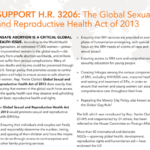
Support H.R. 3206: The Global Sexual and Reproductive Health Act of 2013, which would ensure access to comprehensive sexual and reproductive health care that includes safe abortion.
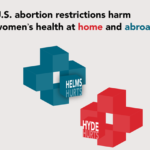
The Hyde and Helms Amendments restrict federal funding for legal abortion care here and abroad and unfairly penalize women for being poor. This is a fact sheet comparing these U.S. policies on abortion.


